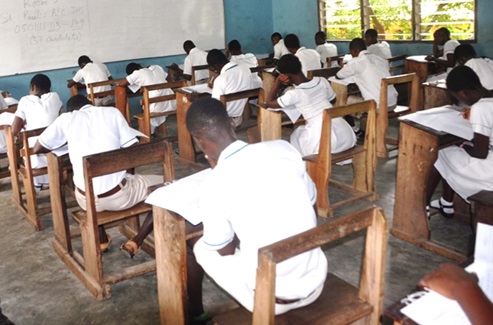
Leveraging technology to curb exam malpractice
Examination malpractice has become a terror to the quality of education in Africa.
Advertisement
Cheating in examinations is no longer considered as news by many due to the rate of its occurrence in some Africa countries.
The widespread reports of students, teachers and parents’ involvement in examination malpractices are not only shameful but worrisome.
In fact, hundreds of thousands of students’ results are frequently being withheld or cancelled by different examination bodies in West Africa as a result of their involvement in various forms of examination malpractices.
The increasing cases of examination malpractices may partly be linked with the long institutional decays in most African countries which have exposed the educational system to different levels of corruption ranging from maladministration, embezzlement, result falsification, bribery, cheating, impersonation, sexual abuse and favouritism.
This is in addition to the perennial problem of unavailability of basic teaching and learning facilities and instructional aids necessary to inspire students’ interest in learning as well as poor motivation of teachers to perform their duties.
All of these contributes in no small measure to the increasing students’ involvement in examination malpractices.
The devastations created by examination malpractice is colossal and recurrent, hence the need for use of technology to nip it in the bud.
Causes of exam malpractice
Institutional corruption has made a lot of officials to compromise examination papers for financial gains.
The state of facilities in most public schools across West Africa is worrisome.
Many schools lack the basic facilities such as laboratories and well-equipped libraries to support teaching and learning.
This affects the confidence of students going into external examinations.
Hence in order to avoid failures, many students often resort to cheating to get results.
One of the leading causes of examination malpractice in West Africa is poor supervision.
Many times, few supervisors are sent to supervise large number of students thereby making it extremely difficult for them to supervise thoroughly because they are overwhelmed by the crowd of students.
Technology has the potential to mitigate examination malpractices if properly deployed.
Examination malpractices are being encouraged and funded by some parents who go around lobbying lecturers on behalf of their children.
The failure of parental duties and the involvement of parents in cheating have worsened the cases of malpractices in examinations.
The increasing rate of moral decay in the society encourages examination malpractices.
Many students and educators no longer see examination malpractice as evil.
Cheating is becoming a norm in some society.
Most people now regard malpractice as a business and can go to any extent to collect money from examinees to facilitate their success in examinations.
Curbing malpractice through technology
Emerging technologies have the potentials to help improve the quality and conduct of examinations.
Technology can be used to prepare examination questions, monitor examinations and authenticate examinees.
Technological tools such as CCTV cameras, biometric technologies and facial recognition technology could be very useful to mitigate the occurrence of examination malpractice and prosecution of culprits.
When these technologies are deployed in examination centres, it will dissuade perpetrators of examination malpractice.
The use of technology for the conduct and supervision of examinations in West Africa is very sparse.
This is obvious by the use of e-registration and e-examination to assess staff, students and employees.
Thus, considering the dangers posed by examination malpractice, there is need for all educational institutions and examination bodies to embrace cutting edge technologies to improve the quality and integrity of examinations which can mitigate to large extent the menace of examination malpractice.
Barriers to adopting technology
Most educational institutions are poorly funded.
There are no funds to purchase and maintain technological equipment.
Lack of facilities and infrastructures to support the use of technology.
Many educators are not ready to embrace technology to improve the system due to their ignorance or selfish interest.
Most technologies require the use of constant electricity which is obviously lacking in rural communities.
Inadequate skilled manpower to operate and maintain technological devices poses a big challenge.
Educational institutions do not integrate technology in their teaching and learning process.
Hence, it becomes difficult for students to use technology during examinations.
Poor network and Internet connections discourage the use of technology in examinations.
There are concerns about the security of cloud data.
The fear of hacking, unauthorised access and leakage of e-examination records may discourage institutions from adopting technology in examinations.
Security remains a concern for use of technology in examinations.
Conclusion/Recommendations
Examination malpractice has become a monster in West Africa.
Beyond making laws to punish perpetrators of examination malpractice, proactive measures should be put in place to address the various decays in the educational system to discourage malpractices.
Governments in West Africa should allocate more funds to education to tackle the challenges in the sector.
The problem of power supply should be given attention to enhance use of technology in examinations.
More emphases should be placed on moral values to dissuade students from malpractices.
Educational institutions should put measures in place to maintain the integrity of their examinations.
Technology should be integrated into the teaching and learning process to improve students’ involvement in learning and understanding of concepts in order to improve their confidence in writing examinations.
The writer is a PhD candidate, University of Ghana ([email protected])




